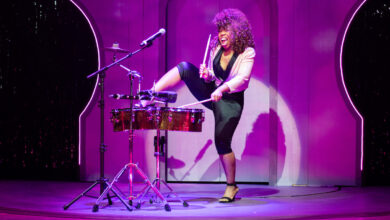Understanding HAA: A Deep Dive into a Mysterious Yet Fascinating Term

HAA you’ve recently stumbled upon the term you’re probably wondering what it means, why it’s being used in different contexts, and how it seems to have grown in popularity. Whether you’ve seen it in memes, music, casual conversations, or even spiritual discussions, is one of those words that feels familiar and strange all at once.
This article will unpack everything there is to know about haa — from its origins and meanings to its impact on language, pop culture, and digital trends. So grab a coffee, sit back, and let’s explore the fascinating world of haa.
What is HAA?
At first glance, haa looks like a simple three-letter expression. But scratch the surface, and it reveals a multi-layered meaning, depending on the context in which it’s used. For some,It is an expression of emotion. For others, it’s a sound used in meditative breathing. In certain languages and cultures, it even has deeper spiritual or grammatical significance.
In casual internet language, It often pops up in reaction memes, TikTok, and Twitter threads. It’s one of those spontaneous expressions that carries more emotion than grammar — and that’s what makes it so powerful. When someone texts “haa,” it can mean surprise, frustration, humour, or even a sigh of relief.
In spoken language, especially in South Asian cultures, can mean “yes” in Hindi or Urdu. It’s used frequently in day-to-day conversations, and it’s one of the first words people learn when picking up these languages. So, haa is not just a random term — it carries linguistic weight.
The Linguistic Side of HAA

From a linguistic perspective, it is what you’d call an interjection. Interjections are words that express spontaneous feelings or reactions. Think of “oh!”, “Wow!”, or “ugh!” — these words don’t always follow the rules of grammar, but they’re emotionally loaded.
In English, we don’t see it formally listed in dictionaries (at least not yet), but it’s starting to appear more and more in informal writing and speech. It’s a prime example of how digital communication is shaping language in real-time. In Hindi or Urdu, however, haa is a fully accepted part of the vocabulary, directly translating to “yes.”
What makes so fascinating is how fluid it is. Depending on the tone and context, it can mean agreement, sarcasm, confusion, or contentment. You can’t always explain it, but you feel it, and that’s the beauty of interjections like it.
HAA in Pop Culture and Memes
Let’s face it: if you’ve seen a viral video or meme in the past few months, chances are you’ve come across haa. It’s often used to capture a moment that needs no real explanation — just raw emotion.
One of the most iconic uses of it in memes is when it’s paired with confused or exaggerated facial expressions. A person might be saying something wild, and the response is just: It’s the digital equivalent of raising your eyebrows and tilting your head.
In music, especially in hip-hop and experimental genres,It has been used as a vocal filler or rhythmic pause. It gives the track attitude, personality, and emotion, without even saying a full sentence. Think of it as the modern-day “uh-huh” or “yo.”
From TikTok trends to YouTube reactions, It is becoming a go-to soundbite. It’s short, flexible, and full of attitude. And in a world where everyone’s trying to get their message across fast,it works.
Spiritual and Meditative Interpretations of HAA
Beyond pop culture, haa also holds spiritual significance in several cultures and traditions. In certain forms of meditation and yoga, haa is used as a powerful exhale sound. It’s believed to release pent-up energy, open the chest, and balance the inner body.
Breathwork sessions sometimes involve chanting during exhalation to connect more deeply with the present moment. The vibration of the sound activates parts of the nervous system that promote calm and relaxation.
Some spiritual practitioners even associate with heart chakra activation — the idea being that the vibration resonates through the chest and opens emotional pathways. Whether or not you believe in energy center there’s no denying the physical relief you feel after a good, strong breath.
It’s amazing how one little sound can play such a big role in both physical and emotional healing.
HAA in Different Languages
While it is trending online in English-speaking spaces, it has always existed in other languages with unique meanings. In Arabic, haa (هـ) is a letter of the alphabet, pronounced similarly to the English “h.” It’s a consonant used in thousands of words and has a strong phonetic presence.
In Japanese, though not a word on its own, It can appear in anime or manga to express surprise or disapproval. It’s often written in katakana to indicate it’s a sound, not a word. You might see a character say “Haa?” when they’re confused or shocked.
In Scandinavian dialects,It can even refer to certain geographical or historical references — though these are much rarer in everyday use.
The multilingual nature of Haa is what makes it such an interesting case study. It crosses borders and adapts to various meanings, yet still holds a common thread of emotional intensity.
Why People Love Using HAA
There’s something incredibly satisfying about using in speech or text. It’s brief but expressive, informal yet impactful. For a generation that loves fast communication, It checks all the boxes.
People love it because it doesn’t require an explanation. You say and the tone says everything else. Whether you’re tired, confused, or mildly annoyed, it delivers the message instantly.
It’s also versatile. You can type it as . or even and each version has a slightly different vibe. That kind of flexibility is rare in language, and it gives users a creative tool to play with.
Plus, let’s not forget that it’s fun to say. Try it: Feels good, right?
The Rise of HAA in Internet Slang
The internet has a funny way of taking simple words and giving them a whole new life. That’s exactly what happened with haa. On platforms like Reddit, TikTok, and X (formerly Twitter),It has become a staple in comment sections and viral threads.
One of the reasons for its popularity is the relatability it brings. If someone posts a video of a confusing moment, you don’t need a long paragraph — just type and you’ve said it all. It’s a minimalistic expression at its finest.
Over time, creators have even started building content around the word it. You’ll find skits, audio loops, and jokes that revolve entirely around that one sound. It’s a form of digital storytelling that relies on sound rather than structure.
As internet slang continues to evolve, It is likely to stick around — and possibly even evolve into more stylized formats.
HAA in Text Messaging and Social Media
When it comes to texting, it is the MVP of emotional shortcuts. It’s one of those terms that doesn’t need an emoji — it’s expressive enough on its own.
People use haa in messages to show sarcasm, disappointment, disbelief, or just to kill the awkward silence. It’s a chameleon word — it changes its meaning based on context and tone.
Let’s say your friend tells you they forgot to bring the snacks. You reply with a simple: That could mean “really?” “Come on,” or “I’m not even surprised.” The beauty of it is, the receiver usually gets the hint.
On social media, it also works as a stand-alone comment. Under reels, TikTok or meme pages, you’ll find tons of it comments — often followed by laughing emojis or facepalms. It’s a way of saying “I feel this” without saying anything more.
How Brands and Creators Use HAA
Believe it or not, some brands and content creators have started using as part of their digital identity. It’s catchy, it’s different, and it speaks to the younger crowd.
You might see YouTubers using in thumbnails, captions, or intros to grab attention. It gives their content a casual, relatable tone — the kind that makes you want to click.
Brands, especially in fashion and entertainment, have started experimenting with minimalist phrases like haa for product names, ads, or slogans. It feels modern and edgy, which is perfect for digital-first audiences.
Some influencers have even turned haa into a personal brand — printing it on merchandise, using it as a catchphrase, or creating audio tags. It’s not just a word; it’s an aesthetic.
The Psychology Behind HAA

Why do humans gravitate toward simple expressions like haa? The answer lies in psychology. The human brain processes short, emotionally charged sounds faster than complex sentences. Words like haa trigger immediate recognition and emotional response.
That’s why people find them more satisfying to use. There’s a release that happens — whether it’s stress, laughter, or shock. And because ha is open-ended, it allows for individual interpretation. That’s what makes it such a powerful tool for connection.
Also, the sound of haa is phonetically soft and open. It invites participation. It doesn’t close the conversation — it opens it up for more. That’s why it works so well in memes, chat threads, and spiritual exercises alike.
Future of HAA in Digital and Spoken Language
Looking ahead, it’s safe to say that Haa is not going anywhere. It might evolve even further, possibly becoming a recognized word in dictionaries or even a part of branding campaigns and media scripts.
As language continues to adapt to digital communication, short-form expressions like haa will gain more prominence. They’re easy to type, emotionally rich, and socially shareable.
Don’t be surprised if you start seeing haa in ad slogans, music lyrics, or even course materials on communication. Its versatility makes it a perfect candidate for long-term cultural relevance.
Frequently Asked Questions (FAQs) About HAA
Q: What does HAA mean?
A: It depends on the context. In some cases, it’s an interjection to express surprise or emotion. In Hindi and Urdu, it means “yes.” In meditation, it’s a breathing sound. Online, it can mean anything from confusion to agreement.
Q: Is HAA a real word?
A: It’s not in most English dictionaries yet, but it’s widely recognized in informal language. In Hindi and Urdu, it’s absolutely a real and commonly used word.
Q: How is HAA used in texting?
A: People use haa to express sarcasm, confusion, disbelief, or mild frustration. It’s a way to say a lot without typing a full sentence.
Q: Where did the term HAA come from?
A: It has roots in several languages and cultures. It’s a part of Hindi and Urdu vocabulary, a meditative sound, and an emerging internet slang term.
Q: Is HAA used in music?
A: Yes, especially in hip-hop and electronic genres. Artists use haa as a vocal filler or sound effect to add rhythm and emotion to their tracks.


